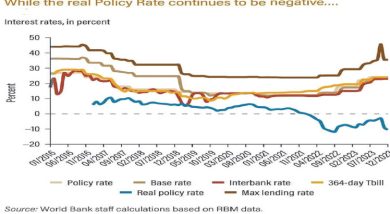Nasfam urges climate smart agriculture
Malawi’s National Association of Smallholder Farmers (Nasfam) says in the wake of continued ravaging effects of climate change, it will continue promoting climate smart agriculture to enable smallholder farmers to accrue more benefits from agricultural production.
Nasfam’s farm services manager Wycliff Kumwenda made the statement on Wednesday when the association conducted a field day in Nathenje, Lilongwe where a variety of climate smart agriculture interventions were showcased.
 Said Kumwenda: “We will continue implementing agricultural practices which are climate smart. The practices promoted include conservation agriculture, crop diversification, agro-forestry and irrigation, among others.”
Said Kumwenda: “We will continue implementing agricultural practices which are climate smart. The practices promoted include conservation agriculture, crop diversification, agro-forestry and irrigation, among others.”
Kumwenda said in recent years the potential impact of climate change on small-scale agriculture in Malawi has captured the association’s attention.
He said the highly unpredictable rainfall patterns over the past years have caused dry spells, droughts and floods which, he said, have resultantly disrupted the ability of some communities to provide for themselves.
Kumwenda described climate change as a global challenge which demands immediate action for the goof of future generations.
Nasfam, according to Kumwenda, is promoting an integrative approach to address challenges of food security and climate change.
He said the approach aims at sustainably increasing agricultural productivity, adapting and building resilience of agricultural and food security systems to climate change, and reducing greenhouse gas emissions from agriculture.
He said Nasfam conservation agriculture, which involves minimum tillage, permanent soil cover and crop rotation, helps to increase productivity through better soils and help farmers adapt to climate change through better water retention.
Kumwenda added that the promotion of conservation agriculture also provides farmers with low-input technologies to help maintain the quality of their natural resources including soil quality.
During the field visit, it was observed that maize under conservation agriculture, legumes under double rows and fields subjected to pigeon pea intercrop had performed better compared to conventional farming practices.





